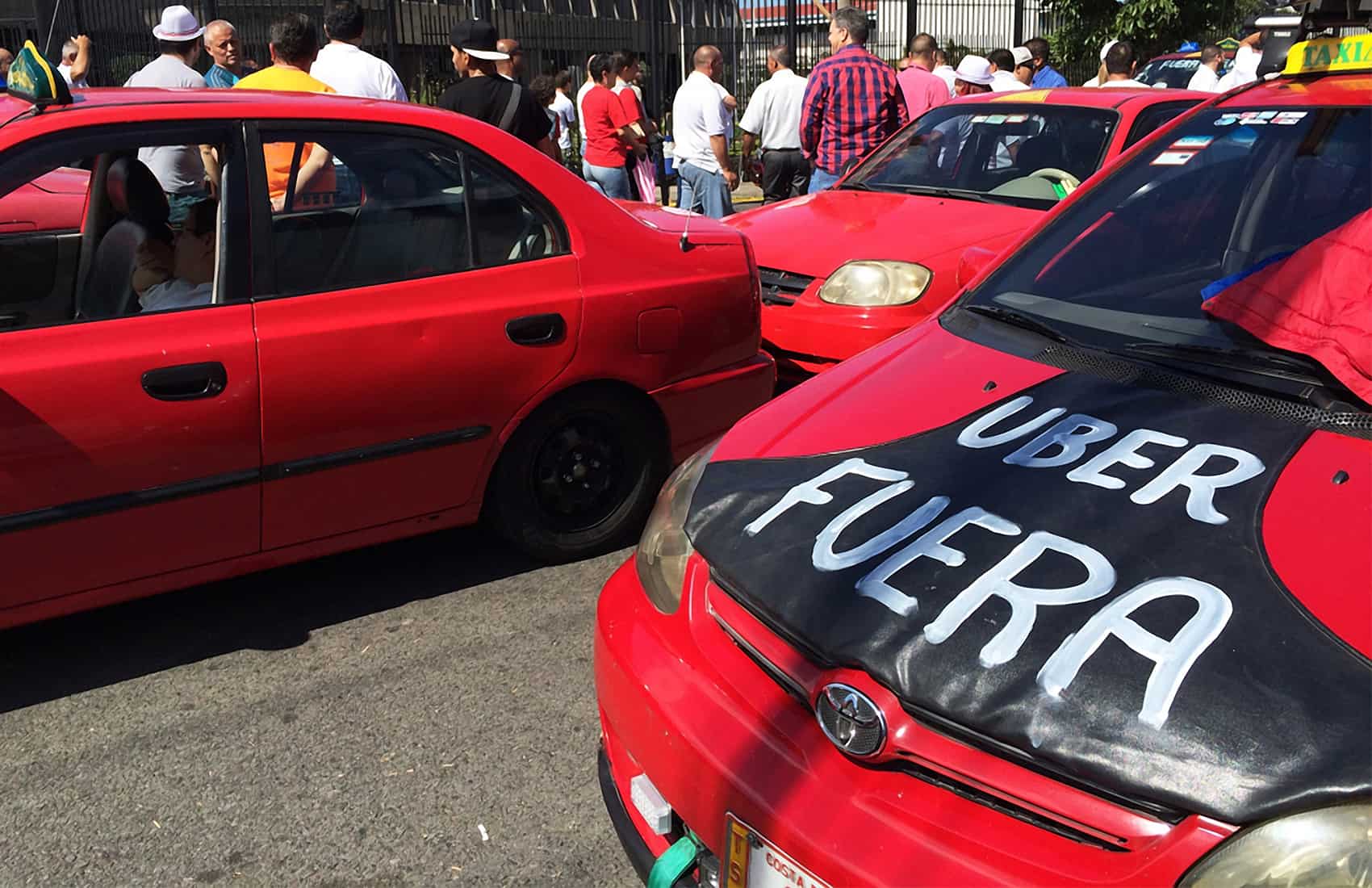The Constitutional Chamber of the Supreme Court, or Sala IV, dismissed a complaint challenging the constitutionality of Law #8955, which regulates the operation of taxis in Costa Rica.
A positive ruling would have paved the road for the legal operation here of private transportation services, including online platforms such as ride-hailing app Uber.
Justices emphasized that their ruling “does not evaluate the constitutionality of Uber’s operation.” They clarified that the ruling only responded to a claim that Law #8955 had established a monopoly.
Libertarian lawmakers Otto Guevara and Natalia Díaz filed the appeal on Feb. 18 2016 following an increase in Traffic Police actions against drivers caught offering transportation services through Uber. Police had been applying fines and confiscating the cars of Uber drivers.
At the time, the Sala IV admitted the complaint and ordered the temporary suspension of actions against Uber drivers and the collection of fines, pending the issuing of a ruling.
The complaint alleged that the Legislative Assembly made a mistake when it passed a reform on Law #8955 creating the Special Taxi Service, or SEE Taxi, a private car service separate from licensed taxi drivers. These private chauffeurs are commonly known here as porteadores.
The lawmakers argued that SEE Taxi constitutes a public monopoly on private ride services and that it violates the Central American Free Trade Agreement.
Sala IV’s ruling 2017-2791, issued Wednesday morning, says the approved legislation does not create a monopoly or violate free trade, as argued by the Libertarians. This ruling opens the door for Traffic Police officers to begin once again issuing fines to any motorist caught providing transportation services without a valid permit.
According to current laws, such a violation is punishable by monetary fines ranging between ₡2.1 – ₡8.4 million ($3,700-14,800) and the confiscation of the driver’s license plates.
Groups of taxi drivers celebrated the ruling on Wednesday afternoon and marched along several streets in downtown San José. The march had a stopover at the Legislative Assembly and another in front of the Supreme Court, where drivers sang the national anthem.
Effects on Uber
Guevara lamented the Sala IV ruling and said he believes the arguments he and other lawmakers had presented were conclusive. He noted, however, that the ruling does not directly address Uber’s operations in Costa Rica.
“This ruling will not prevent the use of Uber in the country at a time when more than 500,000 people have downloaded the app and more than 13,000 people are offering their services to the company’s associates,” Guevara told reporters at the Legislative Assembly.
UBER Costa Rica representatives in a public statement stressed that Sala IV justices clearly stated that their decision does not constitute a ruling on Uber’s constitutionality.
“Therefore, the ruling does not determine the legality or illegality of the platform,” the document says.
The company argued that the ruling actually represents an opportunity for the Executive and Legislative branches to draft and approve a legal framework to structure the use of technology in transportation services.
Uber officially launched operations in Costa Rica in August 2015. Since then, taxi drivers have staged many public demonstrations and blocked streets to demand that the government block the app and ban the company’s operations here.
On several occasions, demonstrations led to violent incidents where taxi drivers attacked Uber drivers and other motorists trying to avoid blockades. One taxi driver chained herself to a tree in front of the home of President Luis Guillermo Solís.
Costa Rican government agencies consider Uber operations here illegal. Separate rulings from the Public Works and Transport Ministry and the Public Transport Council oppose the company’s work here.
See Sala IV’s ruling
https://www.facebook.com/PoderJudicialCR/posts/1691613877519176





